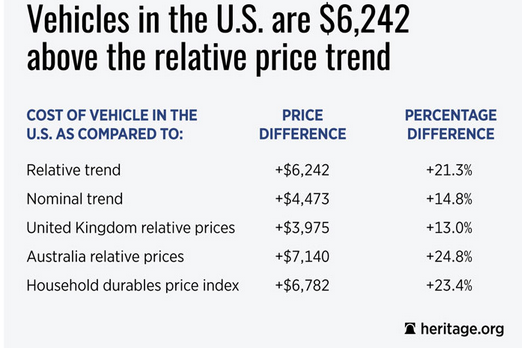On Tuesday, The Washington Examiner posted a list of five things that the Biden administration has attempted to restrict.
This is the list:
Gas stoves
Incandescent lightbulbs
Plastic straws
Gas-powered cars
Washing machines
Anyone looking at this list three years ago would have called it a conspiracy theory, but here we are.
The article notes:
The Department of Energy estimated the rule would save consumers 9 cents per month after originally promising higher savings for consumers when the rule was proposed earlier this year. The backlash to the rule caused the House of Representatives to pass the Gas Stove Protection and Freedom Act, which would prevent the Consumer Product Safety Commission from using federal funds to enforce the rule on gas stoves. The bill has not been taken up by the Senate.
…One efficiency standard the Biden administration was successful in implementing was a lightbulb rule that outlaws nearly all incandescent bulbs from being sold. The standard went into effect in August.
…Interior Secretary Deb Haaland announced in June that a plan would be implemented to phase out single-use plastics on public lands by 2032, citing environmental impacts.
In response to the proposed action, the House of Representatives passed an appropriations bill that would prevent the Interior Department from going forward with the effort. Rep. John Rose (R-TN), who introduced the amendment to deny the measure, argued the alternatives to plastics may not be more environmentally friendly.
…The Biden administration has been a strong advocate of electric cars and phasing out gas-powered vehicles, with the Department of Transportation’s proposed fuel efficiency rules being a recent example of this push.
The proposed rule would raise standards for fuel efficiency to 66 miles per gallon for cars and 54 mpg for trucks by 2032, something National Highway Traffic Safety Administration acting Administrator Ann Carlson has said is “good news for everyone.”
…A proposed efficiency standard by the Department of Energy for washing machines, which could go into effect as early as 2027, has also been criticized as restricting more effective washing machines from being sold.
The Energy Department said the standards would save consumers $3.5 billion annually on energy and water bills, but opponents of the rule argue it would drive up costs for washers while also being detrimental to their effectiveness.
Let’s work together to make sure that the Biden administration has no more success in banning items that make life easier and more efficient for most Americans.

